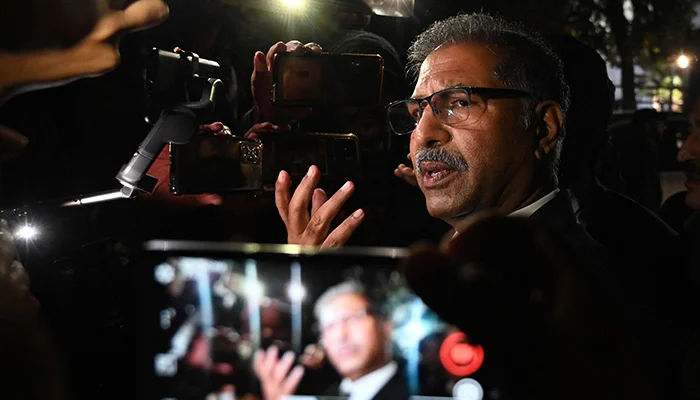Barrister Ali Zafar will be the next chairman nominee for the Pakistan Tehreek-e-Insaf, PTI leader Barrister Gohar Ali Khan declared Thursday, after the former ruling party’s top position has been vacant for more than a month.
“This time, our candidate for party chairman will be Barrister Ali Zafar, and Omar Ayub, secretary general,” Gohar told reporters outside Rawalpindi’s Adiala Jail after meeting with party founder Imran Khan.
The Election Commission of Pakistan (ECP) barred the PTI party from using its electoral emblem, claiming anomalies in internal polls that did not follow the party’s own constitution and election procedures, leaving it without senior positions.
Despite relief from the Peshawar High Court, the Supreme Court removed the PTI’s symbol in December, just two months before the February 8 general elections.
This dealt a significant damage to it, as getting reserved seats even after collaborating with the Sunni Ittehad Council (SIC) post-elections remained difficult.
Gohar said that fresh intra-party elections would be held on March 3 and that everyone would do everything in their ability to achieve Zafar’s election as the party’s next chairman.
Earlier this month, PTI spokesperson Raoof Hasan said that intra-party votes to elect the chairman, central and provincial organising committees will take place on February 5, but the party then postponed the elections.
According to the PTI’s election timetable, candidates who want to run in the intra-party elections can submit their nomination papers on February 23 and 24, with the scrutiny taking place on February 25.
Meanwhile, the final decision on nomination papers will be published on February 27, and voting will take place on March 3 at the party’s central office and provincial secretariats.
Earlier this week, the party — whose candidates won over 80 National Assembly (NA) seats, more than 100 Punjab Assembly seats, and emerged as the largest party in the KP Assembly in the Feb 8 polls — announced a partnership with the SIC in the Centre, Punjab, and KP in order to secure its share of the 70 NA reserved seats for women and minorities, which are allocated proportionally to parties.







